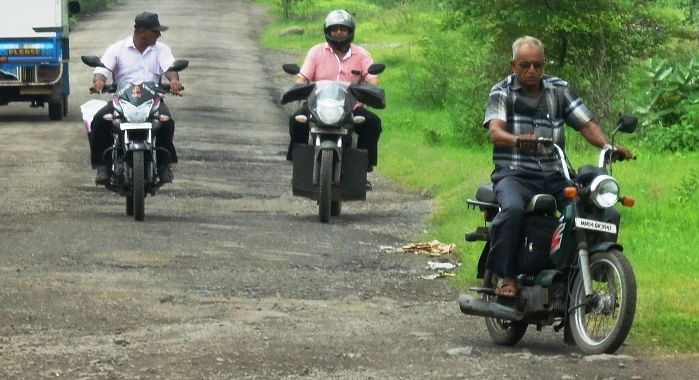Demonetisation leads to dip in car bookings across India
The government’s demonetisation move has resulted in slowing down of customer footfalls for some carmakers. Industry body SIAM says the move will severely impact the financial targets of four-wheeler companies in the short-term.
While sales of the passenger vehicle industry, particularly utility vehicles, were just about beginning to accelerate for FY2016-17, the Centre delivered a speedbreaker on November 8 with its announcement of demonetisation of Rs 500 and Rs 1,000 currency notes.
At a rough estimate, carmakers in India have seen a dip in bookings and enquiries are not translating into sales following the announcement. Though the passenger car market is not marked by cash sales with about 70-80 percent of payments made through funding institutions, or through debit and credit cards, the impact of the demonetisation drive is more than visible. This has subdued the overall market sentiment as customers have rejigged their priorities with liquid cash not readily available.
But RC Bhargava, chairman of Maruti Suzuki India, told Autocar Professional that demonetisation is a major reform of the present government that will change the way business and industry function in India. “No major reform can happen without some pain. The objective of the reform is to eliminate black money which is good for the economy and the industry in the long-term. Someone had to take this tough decision.”
Bhargava feels that it is too early to say whether Maruti Suzuki will be able to meet its financial targets or not in FY2017 as the reform is just a few days into the month.
Honda and Toyota see dip in customer footfalls
Honda Cars India has witnessed more than a 30 percent dip in customer footfalls this month at its dealerships which has affected sales of vehicles across the board.
Jnaneswar Sen, senior VP (sales and marketing), Honda Cars India, prefers to adopt a wait-and-watch approach and is non-committal about the company being able to reach its targets for FY2017. He says December sales numbers could be different with a softening up on the currency crunch front. That would push up sales and enable carmakers to achieve this fiscal’s sales targets.
Meanwhile, Toyota Kirloskar Motor (TKM) has experienced a slowing down of deliveries though no cancellations have been reported. The carmaker has witnessed a 10-15 percent dip in enquiries and walk-ins in the past week. N Raja, director and senior vice-president, TKM, maintains that if the situation recovers in the coming week or two, then meeting fiscal targets for the fiscal would be possible.
Apex industry SIAM feels the subdued market sentiments will continue for another couple of months and would severely impact the financial targets of four-wheeler companies in the short-term.
Vishnu Mathur, director general of SIAM, says that at present people are more concerned about getting money rather than spending it. This trend will continue for another couple of months till the liquidity crunch eases. Since 80 percent of four-wheeler sales in India are carried out through bank finances and 20 percent in the form of upfront payments, or by cheque, many customers will not be able to do so seeing the pressure that banks are currently under.
No more cash down in rural India
The scenario in rural India though could be could be worse compared to urban India. In non-urban centres, RTOs that accept road tax for new registration of vehicles in the form of cash will now put the lid on it as car purchases have become discretionary. It is understood that though people are visiting showrooms, they are not making any bookings. This has seen some car companies offer 100 percent funding options to woo customers.
Entry level bikes to feel the heat

In the case of two-wheelers, where the majority of the payment is in cash in rural markets, sales would be more impacted by end of the fiscal. According to ICRA, the demonetisation move is expected to have a moderate adverse impact on domestic two-wheeler sales volumes in the near term. Rural markets account for about 60- 65% of the entry segment motorcycle sales and given the high propensity for cash purchases in the rural markets, the entry bike segment is expected to be a casualty.
Though favourable monsoons have been a significant trigger for healthy demand from the rural markets during the current fiscal, most of the sales have been sentiment driven given that the kharif crop sales have commenced in October / November. However, the recent ban on high denomination notes and the consequent constrained liquidity may result in dip in realisations as well as delay in realisations of crop sales thereby causing postponement of demand for such vehicles.
However, ICRA believes that the adverse impact is likely to be a short-term one. With strong structural factors and demand drivers, the two-wheeler volumes are likely to revive in the forthcoming months.
Related:
- FADA says demonetisation has put auto retail trade under 'severe stress'
- How currency scrappage will impact the Indian auto industry
RELATED ARTICLES
Cosmo First diversifies into paint protection film and ceramic coatings
The Aurangabad, Maharashtra-based packaging materials supplier is leveraging its competencies in plastic films and speci...
JSW MG Motor India confident of selling 1,000 M9 electric MPVs in first year
The 5.2-metre-long, seven-seater luxury electric MPV, which will be locally assembled at the Halol plant in Gujarat, wil...
Modern Automotives targets 25% CAGR in forged components by FY2031, diversifies into e-3Ws
The Tier-1 component supplier of forged components such as connecting rods, crankshafts, tie-rods, and fork bridges to l...






 By Shobha Mathur
By Shobha Mathur
 21 Nov 2016
21 Nov 2016
 18336 Views
18336 Views





 Autocar Professional Bureau
Autocar Professional Bureau




